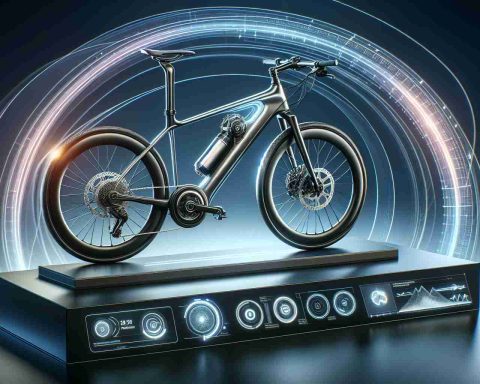Overview of the Electric Commercial Vehicle Market in Europe
Recent analysis from the International Council on Clean Transportation (ICCT) sheds light on the electric bus and truck sectors in Europe, revealing significant trends and shifts among manufacturers. In the third quarter of 2024, Volvo emerged as the front-runner in the heavy-duty electric truck category, while Iveco captured the title for light and medium-duty trucks, with Daimler Buses leading the electric bus market.
The ICCT’s methodology differs from the European Automobile Manufacturers’ Association (ACEA), affecting reported figures. For instance, the ICCT considers all trucks over 12 tonnes as heavy-duty, contrasting with ACEA’s threshold of 16 tonnes. In the EU, nearly 2,900 zero-emission vehicles were sold in Q3 alone, with heavy-duty truck registrations showing a remarkable 42% increase compared to the previous year.
However, the overall market didn’t see a steady rise. While Q2 was robust with 110,000 trucks, Q3 saw a sharp decline to only 74,000, reflecting a trend that was less pronounced in electric vehicle registrations.
In terms of manufacturer rankings, Volvo Trucks held a 36% share of the heavy-duty segment, followed closely by Renault Trucks with 32%. The light and medium-duty truck segment witnessed a shake-up as Ford lost its long-held leadership position. Meanwhile, in the electric bus arena, Daimler Buses topped sales with a 16% market share, closely pursued by several competitors, illustrating the competitive landscape of this burgeoning sector.
Revolutionizing Roads: The Electric Commercial Vehicle Market in Europe
Overview of the Electric Commercial Vehicle Market in Europe
The electric commercial vehicle (ECV) market in Europe is undergoing a transformative phase as manufacturers adapt to new economic realities and environmental regulations. Insights from the latest analysis by the International Council on Clean Transportation (ICCT) reveal intriguing dynamics within the sectors of electric buses and trucks, particularly as we advance into 2024.
Key Market Trends and Insights
1. Leading Manufacturers:
– Volvo has solidified its position as the leader in the heavy-duty electric truck category, capturing a 36% market share.
– Iveco is making significant strides in the light and medium-duty truck segments, reflecting a focused strategy on electrification.
– Daimler Buses continues to dominate the electric bus market, holding a 16% market share, showcasing their robust advancements in bus technology.
2. Market Performance:
– The third quarter of 2024 witnessed nearly 2,900 zero-emission vehicle sales, marking a 42% increase in heavy-duty truck registrations compared to the previous year. However, a decline in overall truck registrations was noted, dropping from 110,000 trucks in Q2 to 74,000 in Q3.
3. Rising Competition:
– The competition is intensifying, particularly in the electric bus market where Daimler Buses is closely challenged by emerging brands.
– In light and medium-duty segments, Ford has lost its leadership position, indicating a shift in market dynamics.
Pros and Cons of Electric Commercial Vehicles
# Pros
– Environmental Benefits: Reduced greenhouse gas emissions and improved air quality.
– Operational Cost Savings: Lower fuel costs and maintenance expenditures over time.
– Government Incentives: Many governments offer significant subsidies and incentives for ECV adoption.
# Cons
– High Initial Costs: The upfront cost of electric vehicles can be higher than traditional diesel options.
– Charging Infrastructure: Limited charging stations can hinder the operational range of these vehicles.
Specifications and Features
– Heavy-duty trucks: Typically defined as vehicles exceeding 12 tonnes (ICCT methodology) with advanced battery technology for long-range capabilities.
– Electric buses: Designed for urban and suburban areas, featuring regenerative braking systems and options for rapid charging.
Use Cases
Electric commercial vehicles are ideal for:
– Urban Deliveries: Reducing emissions in city centers.
– Public Transportation: Offering quieter and cleaner options for public transit authorities.
– Logistics: Transitions in logistics companies focusing on sustainable delivery solutions.
Market Analysis and Trends
The shift towards electric commercial vehicles is driven by:
– Legislative Pressures: Increasing regulations on emissions and diesel vehicle usage across Europe.
– Technological Advancements: Enhancements in battery technology are improving range and reducing costs.
– Economic Shifts: The rising cost of fossil fuels and changes in consumer preferences are accelerating the adoption of ECVs.
Future Predictions and Innovations
The outlook for electric commercial vehicles in Europe is positive, with expectations of:
– Continued growth in electric vehicle registrations due to environmental policies.
– Innovations in battery technology that will enhance efficiency and range.
– A gradual build-out of charging infrastructure, supporting deeper penetration into the market.
For a broader perspective on innovations in sustainable transportation, visit ICCT for their detailed reports and analyses.
Final Thoughts
As the electric commercial vehicle market continues to evolve, manufacturers are responding with innovative solutions to meet changing demands. The competitive landscape is becoming increasingly dynamic, paving the way for a sustainable future in transportation.








